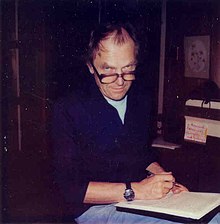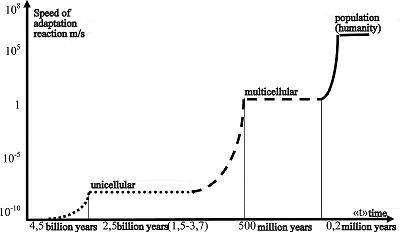பயனர்:உலோ.செந்தமிழ்க்கோதை/மணல்தொட்டி
அண்மைக்கால அணுகுமுறைகள்தொகுஅடிக்கோளியல் கற்பிதங்கள்தொகுSome thinkers seek to articulate axiomatic assumptions on which science may be based, a form of foundationalism. Proponents argue that these assumptions are reasonable and necessary for practicing science. For instance, Hugh Gauch argues that science presupposes that "the physical world is orderly and comprehensible."[1] Likewise, biologist Stephen Jay Gould cites the constancy of nature's laws as an assumption which a scientist should assume before proceeding to do geology.[2] In this view, the uniformity of scientific laws is an unprovable postulate which enables scientists to extrapolate into the unobservable past. In other words, the constancy of natural laws must be assumed in order to meaningfully study the past.[3] ஒருங்கியைபுவாதம்தொகு In contrast to the view that science rests on foundational assumptions, coherentism asserts that statements are justified by being a part of a coherent system. Or, rather, individual statements cannot be validated on their own: only coherent systems can be justified. A prediction of a transit of Venus is justified by its being coherent with broader beliefs about celestial mechanics and earlier observations. As explained above, observation is a cognitive act. That is, it relies on a pre-existing understanding, a systematic set of beliefs. An observation of a transit of Venus requires a huge range of auxiliary beliefs, such as those that describe the optics of telescopes, the mechanics of the telescope mount, and an understanding of celestial mechanics. If the prediction fails and a transit is not observed, that is likely to occasion an adjustment in the system, a change in some auxiliary assumption, rather than a rejection of the theoretical system. In fact, according to the Duhem-Quine thesis, after Pierre Duhem and Willard Van Orman Quine, it is impossible to test a theory in isolation. One must always add auxiliary hypotheses in order to make testable predictions. For example, to test Newton's Law of Gravitation in the solar system, one needs information about the masses and positions of the Sun and all the planets. Famously, the failure to predict the orbit of Uranus in the 19th century led not to the rejection of Newton's Law but rather to the rejection of the hypothesis that the solar system comprises only seven planets. The investigations that followed led to the discovery of an eighth planet, Neptune. If a test fails, something is wrong. But there is a problem in figuring out what that something is: a missing planet, badly calibrated test equipment, an unsuspected curvature of space, or something else. One consequence of the Duhem-Quine thesis is that one can make any theory compatible with any empirical observation by the addition of a sufficient number of suitable ad hoc hypotheses. Karl Popper accepted this thesis, leading him to reject naïve falsification. Instead, he favored a "survival of the fittest" view in which the most falsifiable scientific theories are to be preferred. எதுவும் நடக்கலாம்தொகு Austrian philosopher of science Paul Feyerabend argued that no description of scientific method could possibly be broad enough to encompass all the approaches and methods used by scientists. He claimed there are no useful and exception-free methodological rules governing the progress of science. Feyerabend objected to prescriptive scientific method on the grounds that any such method would stifle and cramp scientific progress. Feyerabend claimed, "the only principle that does not inhibit progress is: anything goes."[4] Feyerabend felt that science started as a liberating movement, but over time it had become increasingly dogmatic and rigid, and therefore had become increasingly an ideology, and, despite its successes, science had started to attain some oppressive features. He argued it was not possible to come up with an unambiguous way to distinguish science from religion, magic, or mythology. He felt the exclusive dominance of science as a means of directing society was authoritarian and ungrounded.[4] Promulgation of this epistemological anarchism earned Feyerabend the title of "the worst enemy of science" from his detractors.[5] அறிவியல் அறிவின் சமூகவியல்தொகு'A paradigm is what the members of a community of scientists share, and, conversely, a scientific community consists of men who share a paradigm'.[6] On Kuhn's account, science can be done only as a part of a community, and is inherently a communal activity. The fundamental difference between science and other disciplines is in the way in which the communities function. Others, especially Feyerabend and some post-modernist thinkers, have argued that there is insufficient difference between social practices in science and other disciplines to maintain this distinction. It is apparent that social factors play an important and direct role in scientific method, but that they do not serve to differentiate science from other disciplines. Furthermore, although on this account science is socially constructed, it does not follow that reality is a social construct. (See Science studies and the links there.) There are, however, those who maintain that scientific reality is indeed a social construct, to quote Quine:
The public backlash of scientists against such views, particularly in the 1990s, came to be known as the science wars. A major development in recent decades has been the study of the formation, structure, and evolution of scientific communities by sociologists and anthropologists including David Bloor, Barry Barnes, Harry Collins, Michel Callon, Bruno Latour, John Law, Anselm Strauss, Lucy Suchman, and others. Concepts and methods (such as rational choice, social choice or game theory) from economics have also been applied for understanding the efficiency of scientific communities in the production of knowledge. This interdisciplinary field has come to be known as Science and Technology Studies. Here the approach to the philosophy of science is to study how scientific communities actually operate. ஐரோப்பிய மெய்யியல்தொகுPhilosophers in the Continental philosophical tradition are not traditionally categorized as philosophers of science. However, they have much to say about science, some of which has anticipated themes in the analytical tradition. For example, Nietzsche advanced the thesis in his "The Genealogy of Morals" that the motive for search of truth in sciences is a kind of ascetic ideal.  Sketch by Franz Kugler In general, science in continental philosophy is viewed from a world-historical perspective. One of the first philosophers who supported this view was Georg Wilhelm Friedrich Hegel. Philosophers such as Pierre Duhem and Gaston Bachelard also wrote their works with this world-historical approach to science, predating Kuhn by a generation or more. All of these approaches involve a historical and sociological turn to science, with a priority on lived experience (a kind of Husserlian "life-world"), rather than a progress-based or anti-historical approach as done in the analytic tradition. This emphasis can be traced through Edmund Husserl's phenomenology, the late works of Merleau-Ponty (Nature: Course Notes from the Collège de France, 1956–1960), and Martin Heidegger's hermeneutics.[8] The largest effect on the continental tradition with respect to science was Martin Heidegger's critique of the theoretical attitude in general which of course includes the scientific attitude. For this reason the Continental tradition has remained much more skeptical of the importance of science in human life and philosophical inquiry. Nonetheless, there have been a number of important works: especially a Kuhnian precursor, Alexandre Koyré. Another important development was that of Foucault's analysis of the historical and scientific thought in The Order of Things and his study of power and corruption within the "science" of madness. Post-Heideggerian authors contributing to the Continental philosophy of science in the second half of the 20th century include Jürgen Habermas (e.g., "Truth and Justification", 1998), Carl Friedrich von Weizsäcker ("The Unity of Nature", 1980), and Wolfgang Stegmüller ("Probleme und Resultate der Wissenschafttheorie und Analytischen Philosophie", 1973–1986). பிற தலைப்புகள்தொகுகுறைத்தல்வாதம்தொகுAnalysis is the activity of breaking an observation or theory down into simpler concepts in order to understand it. Analysis is as essential to science as it is to all rational activities. For example, the task of describing mathematically the motion of a projectile is made easier by separating out the force of gravity, angle of projection and initial velocity. After such analysis it is possible to formulate a suitable theory of motion. Reductionism can refer to one of several philosophical positions related to this approach. One type of reductionism is the belief that all fields of study are ultimately amenable to scientific explanation. Perhaps a historical event might be explained in sociological and psychological terms, which in turn might be described in terms of human physiology, which in turn might be described in terms of chemistry and physics.[9] Daniel Dennett invented the term greedy reductionism to describe the assumption that such reductionism was possible. He claims that it is just 'bad science', seeking to find explanations which are appealing or eloquent, rather than those that are of use in predicting natural phenomena. சமூகக் கணக்குவைப்புதொகுA broad issue affecting the neutrality of science concerns the areas which science chooses to explore, that is, what part of the world and man is studied by science. Philip Kitcher in his "Science, Truth, and Democracy"[10] argues that scientific studies that attempt to show one segment of the population as being less intelligent, successful or emotionally backward compared to others have a political feedback effect which further excludes such groups from access to science. Thus such studies undermine the broad consensus required for good science by excluding certain people, and so proving themselves in the end to be unscientific. தனி அறிவியல் புலங்களின் மெய்யியல்தொகு
In addition to addressing the general questions regarding science and induction, many philosophers of science are occupied by investigating foundational problems in particular sciences. They also examine the implications of particular sciences for broader philosophical questions. The late 20th and early 21st century has seen a rise in the number of practitioners of philosophy of a particular science. புள்ளியியலின் மெய்யியல்தொகுThe problem of induction discussed above is seen in another form in debates over the foundations of statistics. The standard approach to statistical hypothesis testing avoids claims about whether evidence supports a hypothesis or makes it more probable. Instead, the typical test yields a p-value, which is the probability of the evidence being such as it is, under the assumption that the hypothesis being tested is true. If the p-value is too low, the hypothesis is rejected, in a way analogous to falsification. In contrast, Bayesian inference seeks to assign probabilities to hypotheses. Related topics in philosophy of statistics include probability interpretations, overfitting, and the difference between correlation and causation.  கணிதவியலின் மெய்யியல்தொகுPhilosophy of mathematics is concerned with the philosophical foundations and implications of mathematics. The central questions are whether numbers, triangles, and other mathematical entities exist independently of the human mind and what is the nature of mathematical propositions. Is asking whether "1+1=2" is true fundamentally different from asking whether a ball is red? Was calculus invented or discovered? A related question is whether learning mathematics requires experience or reason alone. What does it mean to prove a mathematical theorem and how does one know whether a mathematical proof is correct? Philosophers of mathematics also aim to clarify the relationships between mathematics and logic, human capabilities such as intuition, and the material universe. இயற்பியலின் மெய்யியல்தொகுPhilosophy of physics is the study of the fundamental, philosophical questions underlying modern physics, the study of matter and energy and how they interact. The main questions concern the nature of space and time, atoms and atomism. Also included are the predictions of cosmology, the results of the interpretation of quantum mechanics, the foundations of statistical mechanics, causality, determinism, and the nature of physical laws. Classically, several of these questions were studied as part of metaphysics (for example, those about causality, determinism, and space and time). வேதியியலின் மெய்யியல்தொகுPhilosophy of chemistry is the philosophical study of the methodology and content of the science of chemistry. It is explored by philosophers, chemists, and philosopher-chemist teams. It includes research on general philosophy of science issues as applied to chemistry. For example, can all chemical phenomena be explained by quantum mechanics or is it not possible to reduce chemistry to physics? For another example, chemists have discussed the philosophy of how theories are confirmed in the context of confirming reaction mechanisms. Determining reaction mechanisms is difficult because they cannot be observed directly. Chemists can use a number of indirect measures as evidence to rule out certain mechanisms, but they are often unsure if the remaining mechanism is correct because there are many other possible mechanisms that they have not tested or even thought of.[11] Philosophers have also sought to clarify the meaning of chemical concepts which do not refer to specific physical entities, such as chemical bonds. உயிரியலின் மெய்யியல்தொகுPhilosophy of biology deals with epistemological, metaphysical, and ethical issues in the biological and biomedical sciences. Although philosophers of science and philosophers generally have long been interested in biology (e.g., Aristotle, Descartes, Leibniz and even Kant), philosophy of biology only emerged as an independent field of philosophy in the 1960s and 1970s.[12] Philosophers of science began to pay increasing attention to developments in biology, from the rise of the Modern synthesis in the 1930s and 1940s to the discovery of the structure of Deoxyribonucleic acid (DNA) in 1953 to more recent advances in genetic engineering. Other key ideas such as the reduction of all life processes to biochemical reactions as well as the incorporation of psychology into a broader neuroscience are also addressed. Research in current philosophy of biology includes investigation of the foundations of evolutionary theory,[13] and the role of viruses as persistent symbionts in host genomes. As a consequence the evolution of genetic content order is seen as the result of competent genome editors in contrast to former narratives in which error replication events (mutations) dominated.[14] மருத்துவ மெய்யியல்தொகுBeyond medical ethics and bioethics, the philosophy of medicine is a branch of philosophy that includes the epistemology and ontology/metaphysics of medicine. Within the epistemology of medicine, evidence-based medicine (EBM) (or evidence-based practice (EBP)) has attracted attention, most notably the roles of randomisation,[15][16][17] blinding and placebo controls. Related to these areas of investigation, ontologies of specific interest to the philosophy of medicine include Cartesian dualism, the monogenetic conception of disease[18] and the conceptualization of 'placebos' and 'placebo effects'.[19][20][21][22] There is also a growing interest in the metaphysics of medicine,[23] particularly the idea of causation. Philosophers of medicine might not only be interested in how medical knowledge is generated, but also in the nature of such phenomena. Causation is of interest because the purpose of much medical research is to establish causal relationships, e.g. what causes disease, or what causes people to get better.[24] உளவியலின் மெய்யியல்தொகு Philosophy of psychology refers to issues at the theoretical foundations of modern psychology. Some of these issues are epistemological concerns about the methodology of psychological investigation. For example, is the best method for studying psychology to focus only on the response of behavior to external stimuli or should psychologists focus on mental perception and thought processes?[25] If the latter, an important question is how the internal experiences of others can be measured. Self-reports of feelings and beliefs may not be reliable because, even in cases in which there is no apparent incentive for subjects to intentionally deceive in their answers, self-deception or selective memory may affect their responses. Then even in the case of accurate self-reports, how can responses be compared across individuals? Even if two individuals respond with the same answer on a Likert scale, they may be experiencing very different things. Other issues in philosophy of psychology are philosophical questions about the nature of mind, brain, and cognition, and are perhaps more commonly thought of as part of cognitive science, or philosophy of mind. For example, are humans rational creatures?[25] Is there any sense in which they have free will, and how does that relate to the experience of making choices? Philosophy of psychology also closely monitors contemporary work conducted in cognitive neuroscience, evolutionary psychology, and artificial intelligence, questioning what they can and cannot explain in psychology. Philosophy of psychology is a relatively young field, because psychology only became a discipline of its own in the late 1800s. In particular, neurophilosophy has just recently become its own field with the works of Paul Churchland and Patricia Churchland. Philosophy of mind, by contrast, has been a well-established discipline since before psychology was a field of study at all. It is concerned with questions about the very nature of mind, the qualities of experience, and particular issues like the debate between dualism and monism. Another related field is philosophy of language. பொருளியலின் மெய்யியல்தொகுPhilosophy of economics is the branch of philosophy which studies philosophical issues relating to economics. It can also be defined as the branch of economics which studies its own foundations and morality. It can be categorized into three central topics.[26] The first concerns the definition and scope of economics and by what methods it should be studied and whether these methods rise to the level of epistemic reliability associated with the other special sciences. For example, is it possible to research economics in such a way that it is value-free, establishing facts that are independent of the normative views of the researcher? The second topic is the meaning and implications of rationality. For example, can buying lottery tickets (increasing the riskiness of your income) at the same time as buying insurance (decreasing the riskiness of your income) be rational? The third topic is the normative evaluation of economic policies and outcomes. What criteria should be used to determine whether a given public policy is beneficial for society? சமூக அறிவியலின் மெய்யியல்தொகுமுதன்மைக் கட்டுரை:சமூக அறிவியலின் மெய்யியல் சமூக அறிவியலின் மெய்யியல்என்பது சமூகவியல், மானுடவியல் அல்லது மாந்தரினவியல், அரசியலியல் போன்ர சமூக அறிவியல் புலங்களின் முறைகளையும் ஏரணத்தையும் கருப்பொருளாகக் கொண்டதாகும். சமூக அறிவியலின் மெய்யியலாளர்கள் சமூக அறிவியல் புலங்களுக்கும் இயர்கை அறிவியல் புலங்களுக்கும் இடையில் உள்ள ஒற்றுமைகளையும் வேற்றுமைகளையும் பொருட்படுத்தி, சமூக நிகழ்வு, வாய்ப்புள்ள சமூக விதிகள் ஆகியவற்றுக்கும் சமூகக் கட்டமைப்பு, முகமைகளுக்கும் இடையே நிலவும் இருப்பியல் அல்லது நிலவுகையியல் உறவுகளைக் கவனத்தில் கொள்கின்றனர். பிரெஞ்சு மெய்யியலாளர், அகசுதே காம்தே (1798–1857), நேர்காட்சிவாத அறிதல்முறையியல் கண்ணோட்டத்தை நேர்காட்சி மெய்யியலின் வழித்தடம் எனும் நூலில் நிறுவினார். இந்நூல் 1830 முதல்1842 வரையில் பல பனுவல்களாக வெளியிடப்பட்டது. வழித்தடம் முதல் மூன்று தொகுதிகள் முதன்மையாக அப்போது நிலவிய இயற்கை அறிவியல் புலங்களான கணிதவியல், வானியல், இய்ற்பியல், வேதியியல், உயிரியல் ஆகியவற்றைப் பற்றி விளக்கியது. இவற்றின் பிந்தைய இருபுலங்கள் சமுகவியலின் வருங்கால வரவைக் கட்டியங் கூறின.".[27] காம்தேவின் கருதல்படி, மாந்தரின் சமூகம் பற்றிய அறிகூவல்மிக்க, சிக்கலான சமூகவியலுக்கு முன் இயற்கை அறிவியல்கள் உருவாதல் கட்டாயமாகும். இவர் சமூகத்தின் மூன்று படிமலர்ச்சி கட்டங்கலைக் குறிப்பிடுகிறார் இது 'முக்கட்ட விதி' எனப்படுகிரது. இவர் க்குறும் சமூக வலர்ச்சியின் மூன்று கட்டங்களாவன:(1) இறையியல் கட்டம், (2) the மெய்யியல் கட்டம், and (3) நேர்காட்சிக்கட்டம்.[28] காம்தேவின் நேர்காட்சியியல் அல்லது நேர்காட்சிநெறி முறைசார் சமூகவியல், சமூகவியல் ஆராய்ச்சிக்கான தொடக்கநிலை மெய்யியல் அடிப்படைகளை நிறுவியது. தர்கீம், மார்க்சு, மாக்சு வெபெர் ஆகியோர் நிகழ்கால சமூக அறிவியலின் தந்தையராகப் போற்றப்படுகின்றனர். உளவியலில், நேர்காட்சிநெறி வரலாற்றியலாகப் பேணப்படும் நடத்தையியல்வாதம் அல்லது நெறியில் அமைந்துள்ளது. அறிவியல் தொழில்நுட்பம் வழியிலான சமூக முன்னேற்றம் தவிர்க்கவியலாத விளைவாகும் எனக் கருதும் தொழிநுட்பவியல் அறிஞர்களும் நேர்காட்சிநெறி வழியினரே.[29] நேர்காட்சிவாதம் நெருக்கமாக அறிவியல்வாதத்தோடு பின்னிப்பிணைந்ததாகும்;இது இயற்கை அறிவியல் அறிவையும் முறைகளையும் மெய்யியல், சமூக அறிவியல், பிற அனைத்து துறைகளின் உசாவலுக்கும் பயன்படுத்தலாம் எனக் கருதுகிறது. பெரும்பாலான சமூகவியல் அறிஞர்களும் வரலாற்றியலாளர்களும் மரபான நேர்காட்சிநெறியைப் பின்பற்றுவதில்லை. இன்று, சமூக, இயற்கை அறிவியல் அறிஞர்கள் நடைமுறையில் நோக்கீட்டாளர் சார்புநிலை, சமூகக் கட்டமைப்பு ஆகியவற்றின் பிறழ்நிலை விளைவுகளைக் கவனத்தில் கொள்கின்றனர். இத்தகைய ஐயுறவுநெறி, தாமசு குஃன், புதிய மெய்யியல் இயக்கங்களான உய்யநிலை நடப்புநெறி அல்லது ந்டப்பியல், புதுப்பயன்முறைநெறி ஆகியவற்றின் அறிவியல் சார்ந்த கொணர்வுமுறையைப் பொதுவாக வலுவிழக்கச் செய்கிறது. மெய்யியல்சார் சமூகவியலாளரான யூர்கென் ஏபர்மாசு தூய கருவிசார் பகுத்தறிவு நெறியைப் பின்பற்ரும் அறிவியல் சிந்தனை கருத்தியலுக்கு மிகவும் நெருக்கமாகி விடுகிறதென வாதிடுகிரார்.[30] மேற்கோள்கள்தொகு
உணர்திறத்தோற்றம் (தொல்கிரேக்கம்: νοῦς=உளம் + γένεσις = தோற்றம், உருவாக்கம்)என்பது அறிதிறனின் தோற்றமும் படிமலர்ச்சியும் ஆகும்.[1] சொற்பிறப்பியல்தொகுஅண்மை வளர்ச்சிகள்தொகுபுத்தியல் புரிதல்தொகு
 A – தனியர் தோற்றத்தில் மூளை நரம்பன்களின் எண்ணிக்கை (தனியர் தோற்றம்), B – மாந்த மக்கள்தொகைகளில் மக்கள் எண்ணிக்கையின் படிமலர்ச்சி), C – படிமலர்ச்சியின்போது உயிரி நரம்பு அமைப்புகளில் நரம்பன்களின் எண்ணிக்கை (தொகுதித்தோற்றம்).]]  A - உலக மக்கள்தொகை → 7 பில்லியன்; B – எழுத்தறிந்தோர் எண்ணிக்கை; C – படிக்கப்படும் நூல்களின் எண்ணிக்கை (அச்சிடலின் தொடக்கத்தில் இருந்து); D –அலைவாங்கிகளின் எண்ணிக்கை (வானொலி, தொலைக்காட்சி); |
|||||||||||||||||||||||||||||||||||||
- ↑ Noogenesis // Word Info about English Vocabulary
- ↑ 2.0 2.1 பிழை காட்டு: செல்லாத
<ref>குறிச்சொல்;autogenerated2என்னும் பெயரில் உள்ள ref குறிச்சொல்லுக்கு உரையேதும் வழங்கப்படவில்லை